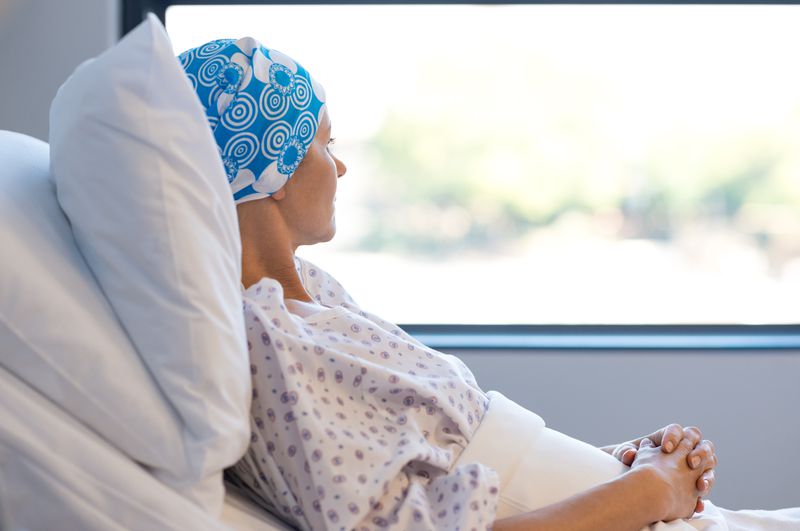Don’t sacrifice cancer care to COVID
The toll from COVID is immense, with more than 90 million people affected and nearly 2 million dead across the world. Yet these numbers don’t tell the full story. The pandemic’s collateral damage in other diseases, like cancer, is rising and will only make itself fully felt in the next few years.
According to recent data from the American Cancer Society, before the pandemic swept the U.S., nearly 2 million new cancer cases and over 600,000 cancer deaths would be projected to occur in 2021 without accounting for the disproportionately negative outcomes COVID is having on cancer patients who become infected. But because cancer patients with COVID have a higher probability of mortality, those numbers will actually be substantially higher.
At the Mark Foundation for Cancer Research, such a secondary impact has hit close to home for one of our colleagues, whose cousin was diagnosed with a treatable cancer at the beginning of 2020. Due to COVID, his treatment was delayed. Months passed before an oncologist examined him in person, as his primary care doctor kept his pain at bay with medication.
At the end of the summer, a treatment regimen was prescribed for this patient, but it was too late. The cancer had spread, and he passed away at the end of October. Because the virus was rampant where he lived, initially, visitors were not allowed to see him in the hospital, so he fought his battle alone. Only when his case was deemed terminal were very few family members allowed to say goodbye.
My colleague’s family is left with an unanswered question: What if his cancer had been treated within weeks and not months? Research confirms that many cancer deaths can be avoided if intervention and aggressive therapies are started early. But stories like this are all too common these days, and we will continue to hear more of them until the virus is finally under control.
Just last week in the UK, potentially life-saving cancer surgeries were once again paused to preserve hospital beds for COVID patients. Sadly, we will likely see similar situations in the United States and elsewhere as pandemic-related hospitalizations continue to mount with devastating consequences.
An even greater toll will result from pandemic-related disruptions in cancer research. Laboratory research projects are moving at a glacial pace and, in some cases, have been completely suspended. When the pandemic hit last spring, most labs shut down fully. Engineered animal models of cancer were culled, precious cell lines developed over years were lost, and experiments months in the making were halted midway. While partial capacity started to come back beginning last summer, COVID-related medical research was prioritized. Anecdotally, we have learned that most labs are working at 50% to 80% capacity, with researchers working in shifts. And getting research back on track has been especially difficult for scientists with young children faced with the challenges of juggling childcare and online schooling in addition to a pandemic-dictated work schedule.
Scientists have had to renegotiate funding deals. Cancer charities are seeing less money come in. Many foundations rely on in-person fundraising events that have also been nixed, causing substantial loss in revenue streams. And foundations like ours, who still have funds to distribute, are witnessing significant underspending and receiving nearly universal requests for lengthy extensions. In our case, between March and December, 17 of 20 our faster-paced innovation grants were given extensions, ranging from six months to a full year.
There have also been extreme delays in enrolling patients for clinical trials. About 18 months ago, we co-sponsored a clinical study to evaluate a faster way of determining whether patients are responding to immunotherapy. Ultimately, patients who did not respond could be rapidly transitioned to other treatments. We expected that at least 25 of 50 total patients would be enrolled within 18 months, although we were optimistic that all patients would be enrolled by this date. Because the pandemic halted enrollment for many cancer clinical trials, we reached the 18-month milestone date with only 10 patients enrolled. At this pace, the possible paradigm change in patient care that this trial promises will likely be delayed by two to three years.
As a fallout of COVID, cancer will be detected in many patients at later stages, when treatments are less effective. We will see above-average diagnoses of cancer in late 2021 into 2022 and substantially more deaths not only from all cancers in general, but also from cancers for which science has already led to better outcomes.
Promising treatments that were poised for near-term patient access are now a long way off. Some of the projects that excited us at the concept stage may never see the light of day due to loss in momentum or researchers moving on to other diseases (such as COVID) or even to new careers.
We need to act before things get worse. We need to protect funding for cancer research and clinical trials disrupted by the coronavirus and increase resources that will accelerate progress to make up for lost time. Cancer researchers are essential workers, just like doctors and nurses, and we need to view them as such. Furthermore, we cannot allow the funding provided by cancer non-profits to dry up. And we must ensure that cancer patients are treated expeditiously and offer expanded care during this difficult time so the vulnerable population does not suffer excessive casualties due to the virus.
COVID’s human toll, we hope, will be brought under control soon with vaccines. What we must ensure right away is that the toll on cancer doesn’t become larger.
Cleary is CEO of the Mark Foundation for Cancer Research in NYC
Source:DailyNews By MICHELE CLEARY
Support families fighting financial toxicity of cancer – here
